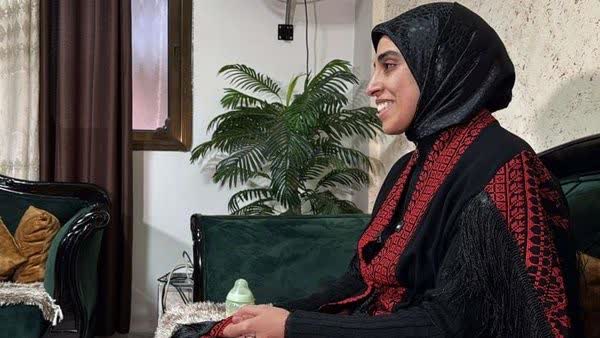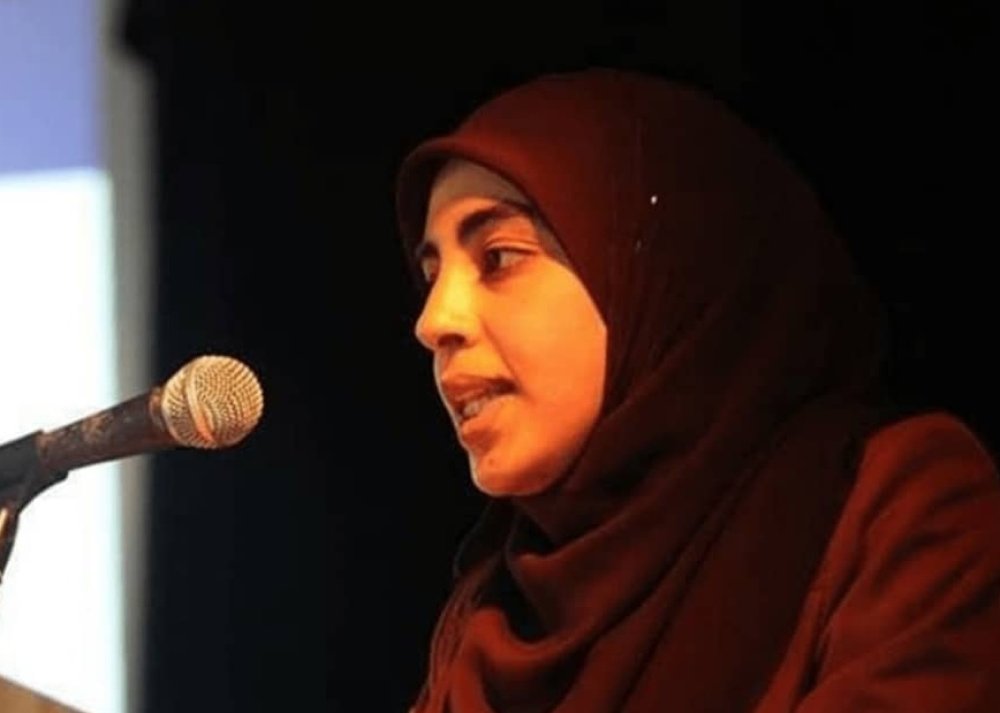Palestinian journalist Rola Hassanin, who was separated from her 9-month-old baby and imprisoned by Israel for defending her homeland, has recounted the harrowing conditions faced by female Palestinian prisoners after her release in a prisoner swap deal with Hamas.
Palestinian journalist Rola Hassanin, who was deprived of embracing her infant and subjected to Israeli imprisonment for defending her homeland, shared her painful experiences of captivity and the dire situation of Palestinian female prisoners after her release as part of a prisoner swap agreement with Hamas.
Rola Hassanin was one of many Palestinian detainees freed early Monday morning (January 21) under the exchange deal. A mother who was separated from her 9-month-old daughter, Ilya, after her arrest on charges of inciting against Israel online.
She had been sentenced to 11 months in prison and fined 5,000 shekels (approximately 1,400 USD). The emotional moment of her reunion with her child and husband was met with a warm and heartfelt reception.

The Pain of Separation
Reflecting on her time in prison, Rola recounted how, instead of holding her baby, she would embrace a pillow in a desperate attempt to ease her heartache and maintain some emotional control during her separation.
“In prison, I was filled with anxiety about how I would meet my daughter, as she was just 9 months old when I was arrested. Naturally, she wouldn’t remember me. After three months in prison, I forgot many of her physical features. I was terrified—how would I see her, would she recognize me, and would she even accept me?” she said.
Rola, who was arrested in March of last year following an Israeli raid on her home in the Bethlehem area of the West Bank, expressed the pain of missing her daughter’s first birthday.
“I couldn’t be there for my child’s first birthday. It was very painful,” she added. She further described the intense emotions of reuniting with her daughter, who had been asleep when she was finally released: “No words can describe that moment. She was half-asleep and woke up to the sound of my voice. I was in a difficult situation, and at first, she didn’t recognize me.”

Who is Rola Hassanin?
A writer and journalist from Ramallah, Rola has written dozens of articles and reports for newspapers and online outlets. Along with 80 other journalists from the West Bank and Jerusalem, she was taken captive during the Gaza war. She was separated from her newborn, who was premature and depended solely on her milk.
Rola is a graduate of Journalism and Media from Birzeit University and holds a master’s degree in Contemporary Arab Studies from the same institution.
Speaking about the conditions for female prisoners in Israeli jails, Rola explained that the Israeli authorities intentionally make life difficult for female detainees. They prevent visits from lawyers, block information from reaching the outside world, and deny family visits, fully isolating prisoners from their families.
“We were living in very harsh conditions, subjected to torture and mistreatment. We lacked winter clothes and were searched relentlessly until the last moments before our release. Due to the torture, we were transferred to Ofer prison in a dire and tragic state,” she said with a tearful voice.
“Every day in prison felt like a thousand years. I would sleep on my bed, holding a pillow instead of my daughter, trying to calm my heart and feel that something was in my arms,” she added.
Describing the brutal treatment of women prisoners, Rola shared how the Israeli forces subjected them to cold exposure, forced hours of standing outside, and invasive strip searches conducted by female Israeli soldiers.
The prison authorities also imposed a hunger-strike policy on female prisoners. “Each day felt like an eternity. We were deprived of healthcare services, and we could only access these services through the courts,” she concluded.
From: fars news


